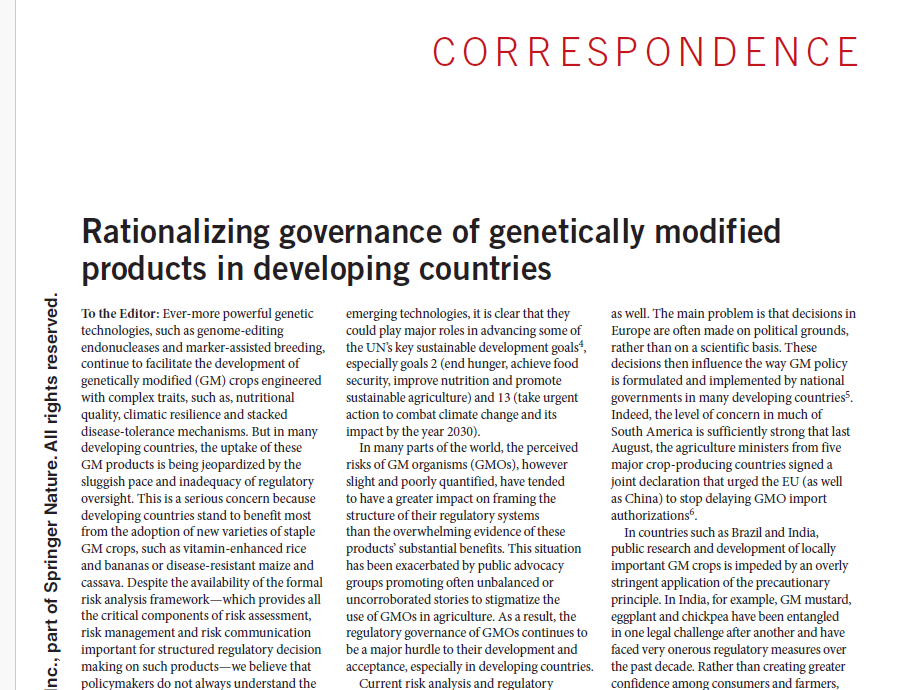Rationalizing governance of genetically modified products in developing countries

Language: English
Publication Year: 2018
Ever-more powerful genetic
technologies, such as genome-editing
endonucleases and marker-assisted breeding,
continue to facilitate the development of
genetically modified (GM) crops engineered
with complex traits, such as, nutritional
quality, climatic resilience and stacked
disease-tolerance mechanisms. But in many
developing countries, the uptake of these
GM products is being jeopardized by the
sluggish pace and inadequacy of regulatory
oversight. This is a serious concern because
developing countries stand to benefit most
from the adoption of new varieties of staple
GM crops, such as vitamin-enhanced rice
and bananas or disease-resistant maize and
cassava. Despite the availability of the formal
risk analysis framework—which provides all
the critical components of risk assessment,
risk management and risk communication
important for structured regulatory decision
making on such products—we believe that
policymakers do not always understand the
underlying factors behind a risk analysis
well enough to facilitate implementation
of robust and realistic biosafety practices.
Here, we argue for a rethink of the way in
which capacity development and training
is implemented in developing countries for
biosafety programs assessing bioengineered
products in developing countries.
Topic
Gene Editing , GMO
Content Pillars
Combatting Misinformation , Food Security
Focus Area
Agricultural Biotechnology , Real Perspectives , Training
Keywords
GMO, Developing countries, Biotechnology, GMO Regulations, Global
Published Date
02 Feb 2018
All Metrics
4 Views
0 Downloads
0 Rating by People

No comment yet.